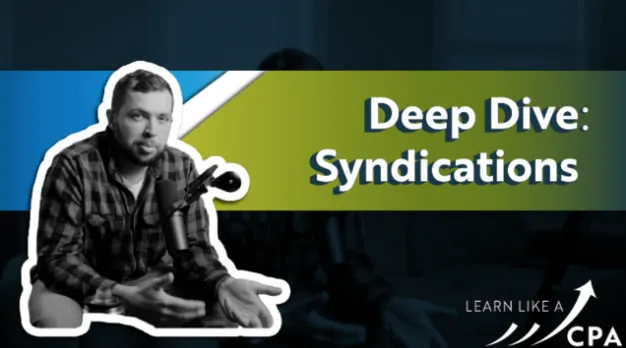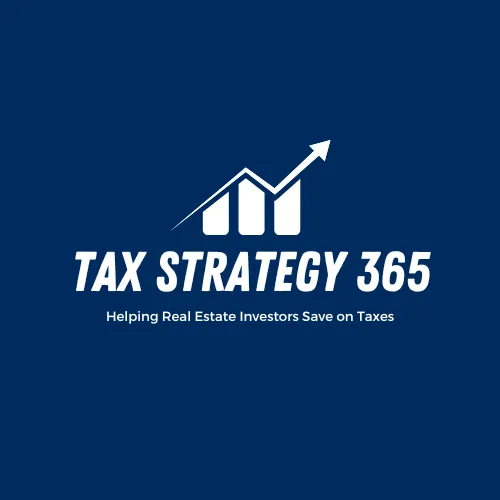Latest blogs and articles
Leading you to a better financial future.

Syndications Deep Dive
Syndications Deep Dive
Let’s talk syndications. What are they, why do you care, and how do you know if it could be a good fit for you. First, what are they?
Let's break down syndications, which are real estate investment funds involving multiple partners. Typically, a few general partners manage the syndication, while the rest are limited partners who contribute capital but aren't involved in day-to-day operations.
Should you invest in one? It depends on your goals and circumstances. Syndications are attractive for investors who want real estate exposure without the hassle of managing properties themselves. Often, these are high earners with limited time or experience, possibly accredited investors with substantial net worth.
However, syndications aren't exclusive to the wealthy. They can also benefit those without access to traditional financing, like young entrepreneurs lacking tax returns for loans.
But here's the flip side. Syndications might not suit beginners seeking high cash returns or shorter investment terms. Returns typically range around 7-8% cash on cash and 15-16% overall, with funds often locked up for five years, potentially limiting opportunities for those with lower net worth.
Now, onto taxes. Syndications offer passive income, allowing losses to offset other passive income. You also get perks like accelerated depreciation and favorable capital gains tax treatment. This can be advantageous for investors shifting from active real estate management to a more hands-off approach.
As a limited partner, watch for "debt bases" – your share of syndication debt – which can affect tax deductions. Also, note that losses can't be deducted against W-2 income, only other capital gains.
Beware of bad operators and aggressive debt strategies. Research thoroughly, review agreements, and understand the fund's liquidation timeline to avoid unexpected tax consequences.
In short, syndications offer diversification and passive income but may not suit everyone. If you're starting out, focusing on growth might be wiser. Always weigh your options and consult a tax professional before diving in.
Syndications Deep Dive
Join my Facebook group with over 9,000 real estate investors!

Choose Your Journey to Tax Excellence
Journey 1
Building a Tax Advisory & Consulting Practice
Scale, streamline, and systemize your advisory business.
Turn compliance clients into year-round advisory opportunities while mastering operational efficiencies for sustainable growth. This track covers pricing, hiring, marketing, and client engagement essentials to help you build a practice you love.
WHAT YOU’LL LEARN:
Crafting solid engagement letters and pricing models.
Transforming compliance clients into year-round
partners.
Marketing
strategies that drive consistent growth.
Recruiting and training the right team to scale your business.
Bonus:A Power Checklist for the ultimate year-end tax planning session.
Journey 2
Tax and Legal Foundations: Core Strategies for All Levels
Master the fundamentals that drive financial success.
Perfect for business owners and advisors, this track delivers essential insights on asset protection, tax planning, estate strategies, and IRS compliance.
WHAT YOU’LL LEARN:
Unlock estate planning with Revocable Living Trusts.
Maximize retirement savings through Solo 401(k) plans.
Real estate strategies: Short-term, long-term, and self-rentals.
Learn asset protection that actually works.
Navigate IRS resolution with confidence and ease.
Journey 3
Advanced Insights: Unlock Complex Tax Strategies
Top-tier strategies for high-value clients.
Designed for experienced professionals, this track offers in-depth guidance on prime tax strategies, entity structuring, and payroll solutions. Gain the insights needed to handle complex business scenarios with confidence.
WHAT YOU’LL LEARN:
Report multi-entity structures with Forms 1065 & 1120S.
Maximize tax savings using Bonus Depreciation & Section 179.
Seamlessly relocate clients to tax-free states.
Navigate business sales and acquisitions smoothly.
Use 105 Plans to save clients on healthcare costs.

2024 Learn Like A CPA. All rights reserved.